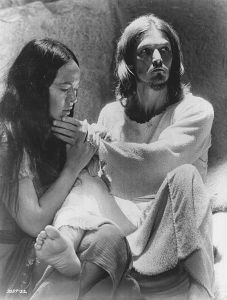
English: Jerusalem, Dome of the rock, in the background the Church of the Holy Sepulchre Deutsch: Jerusalem, Felsendom, im Hintergrund die Grabeskirche (Photo credit: Wikipedia)
I have never been to the Holy Land on holiday or pilgrimage. For some strange reason, there has been no ambition on my part to visit the land on which Christianity was born or to walk where Jesus walked. Am I a peculiar brand of Jesus follower? Am I deprived at all? Is my discipleship impaired by not having visited the sites and places that are part of the Jesus story? Has it made the slightest difference that Nazareth, Bethlehem, Calvary and Jerusalem, recognised as the cradle of the Christian faith, have never featured in my travelogue? Questions I cannot answer for myself, others must do that. One site I probably would have visited, had I ventured to such exotic places, is the Church of the Holy Sepulchre in Jerusalem. Legend has it that there is one spot there which is actually the centre of the world. If this is fact, and not legend, it must occupy a large and significant chapter in the history of Christianity. The centre of the world – there could be no better place for the launching of a world religion. No better place and no better time!
St Paul in his letter to the Church in Galatia writes, “When the fullness of time came God sent forth His Son” (RV). It is interesting to take a look at how some other New Testament writers begin the verse – it adds to the picture.
- When the right time finally came (GNB)
- When the appointed time came (REB)
- When the time arrived that was set by God (The Message).
“The fullness of time” – that is to say, it was when world conditions were exactly ripe for it that God’s supreme revelation of himself came. It was when all the factors were absolutely right – social, economic, moral, religious – that the early Christians heard “The glad tidings of great joy to all mankind, to whom is born a Saviour – Christ the Lord.” Shakespeare says “There is a tide in the affairs of men.” The Christian can cap that and say there is a tide in the affairs of God, when all is done, waiting, getting ready for the prophets’ dream to come true. When that tide reaches the flood, God will act in a new way and the sound of a new name will be heard, the name of Jesus. The Bible of this God tells us that He had done His homework and got it right. Jesus came to the world at the exact time in history where all the conditions signalled “now is the hour.” Someone describes it as the one psychological moment.
When Jesus came, it was the fullness of time politically. Caesar’s legacy must credit the Emperor with the nigh impossible task of establishing the unification of the world: he did it! And alongside it the world benefitted from the Roman Peace. Jesus came to our planet when the Roman Peace held the world together; the barriers were down, the frontiers open; the Roman Empire described as one big friendly neighbourhood. An achievement, so far, still beyond the capabilities of the United Nations and European Union. Another factor that contributed to the unity of the world and the fullness of time was the roads. From one end of the Empire to the other was the great highway that made it possible to travel across the land easily and swiftly. The movement of the military, the logistics of trade, the spread of the Gospel, each benefitted from the vision, the ambition, the skills of the Romans. For six years I lived within the shadow of Hadrian’s Wall and marvelled at the expertise of Roman engineering. Then there was the fact of a common language, a great blessing to the missionaries who travelled along those roads. Unlike those who went out from this country to save souls and win them for Christ, the early evangelists in Roman times did not have to learn a new language. Everywhere the people were bilingual and knew Greek. No need to labour the point!
Furthermore, it was the fullness of time economically and morally. I make no comment, merely draw attention to the fact that in their own way they had a part in preparing the way for the birth of Jesus. My final point – when Jesus first came, it was the right time religiously. The old gods had had their day and were either dead or dying. To fill the gap, two expedients were tried. On the one hand they imported a whole plethora of deities, principally from the East, many of them a bit of a joke. They failed! The next bit of farce was the elevation of Caesar himself to be god and every citizen required to worship him. Give him his due, he saw to it that it was not too difficult to fulfil that requisite; a small pinch of incense annually might do the trick. It also failed! The emperor-god had nothing to say to a man or woman with a broken heart.
“When everything was done that could be done, the hungry hearts of women and men, were hungry still!” But there was an intense and exciting expectation that God was about to do something better, something new; hope was alive and reasonably well. Indeed, they were approaching a time when God was to send his only Son into the world, that the world through Him might be saved. When John the Baptist came folk were hopefully asking, “Is this the Messiah now?” No! But he helped to clear the way for their prayers to be answered, their hope to mature, their dream to come true: the Redeemer came. So, we can sing with Charles Wesley:
Our God contracted to a span; Incomprehensively made man.

